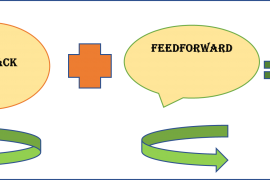The rise of generative AI marks a seismic shift in education: one that rivals the impact of the internet, the printing press, and electricity. As AI tools become increasingly sophisticated and accessible, universities face urgent challenges in maintaining the integrity and relevance of their degrees. In response, the University of Sydney has taken a proactive stance, positioning itself as a national and global leader in assessment reform and academic integrity.
From education to regulation: TEQSA’s new approach
Since the release of GPT-3.5 in late 2022, TEQSA has supported universities through an educative approach, helping institutions understand the implications of AI on assessment and learning. However, in May 2025, TEQSA announced a shift to a regulatory-led framework beginning in 2026. This change reflects the widespread use of generative AI by students and the associated risks to assessment integrity.
While at the time of publication we don’t yet have further details about this regulatory approach, TEQSA expects providers to demonstrate how they are managing these risks in alignment with the Higher Education Standards Framework (Threshold Standards). This includes ensuring assessments confirm learning outcomes, uphold academic integrity, and adapt to emerging technologies and student needs.
Sydney’s two-lane assessment framework
In anticipation of this regulatory shift, the University of Sydney has embedded its sector-leading “two-lane” Assessment Framework into coursework, assessment, and integrity policies. This framework distinguishes between:
- Secure assessments: In-person, supervised tasks that confirm individual student achievement of the course learning outcomes. These may or may not involve students using AI.
- Open assessments: Tasks that reflect disciplinary authentic and real-world challenges, and scaffold and promote the responsible use of AI.
All existing assessments for 2025 have been mapped to this framework, and faculties are now tasked with completing “Assessment Plans” for each degree and component. These plans will guide curriculum and assessment redesign in 2026, ensuring every student pathway continues to meet the Threshold Standards.
Assessment Plans: the backbone of assessment reform
Central to the University’s response is the development and implementation of Assessment Plans for every degree and its components — streams, programs, and majors. These plans are a requirement for every liberal studies and professional and specialist course and the components (majors, streams programs). These plans are strategic tools to ensure that every student pathway reflects the University’s two-lane approach and supports ongoing compliance with national and professional accreditation requirements. They also concentrate on alignment at the discipline level — such as the collection of units in a major that are most meaningful for educators and students.
Work required in 2025
The focus in 2025 is on mapping the current state of assessment across all coursework. This includes:
- Ensuring the re-mapping existing assessments to the new Assessment Framework is accurate.
- Using the newly developed Assessment plan template to articulate the assessment approach for each course and component.
- Mapping learning outcomes and graduate qualities against units and assessment tasks.
- Providing a whole-of-curriculum overview of how secure (Lane 1) and open (Lane 2) assessments are distributed.
- Starting to rethink course and component learning outcomes and their suitability for contemporary society, work, and life
This work is best carried out through disciplinary conversations involving program and key unit coordinators. Faculties are encouraged to use discipline education days or extended education committee meetings to facilitate these discussions. Support is available to help organise and document outcomes.
By the end of 2025, each school and discipline should have completed and agreed upon Assessment Plans for every degree and component. These plans will serve as the foundation for the next phase of reform.
Work required in 2026
In 2026, the emphasis shifts to curriculum and assessment redesign based on the Assessment Plans developed in 2025. This includes:
- Rethinking and realigning course and component learning outcomes
- Redesigning assessments to ensure they
- confirm student achievement of learning outcomes in a secure and authentic manner
- develop the contemporary capabilities, including effective use of generative AI, required and expected by our community
- Embedding assessment into program-level design, a shift that reflects the increasing difficulty of securing individual assessments in an AI-rich and connected environment
This redesign work will feed into the Curriculum Quality and Sustainability program, which prioritises the integration of assessment into program design. By the end of 2026, the University will be able to clearly demonstrate — through these Assessment Plans — how every student pathway in every degree continues to meet TEQSA’s Threshold Standards.
Once finalised, Assessment Plans will become integral to course and unit proposals, changes, and reviews, ensuring ongoing compliance and continuous improvement.
Online learning and secure assessment
The University’s Academic Integrity Policy defines secure assessment as “in-person supervised assessment.” Given the limitations of remote assessment security, a risk-based approval process is being introduced for 2025 – 2026. By 2027, all online programs are likely to require in-person assessments, potentially through exam centres or partner institutions, or other pedagogically-meaningful experiences such as residentials that combine learning with secure assessment.
Looking ahead
The University of Sydney’s response to AI is not just about compliance, it’s about leadership. By embedding secure and authentic assessment into program-level design, we are preparing students to thrive and provide the ethical and intellectual leadership in an AI-rich world while safeguarding the integrity of our degrees.
For educators, this is a call to engage deeply with curriculum and assessment reform. The work ahead is substantial, but it is essential. Through collaboration, innovation, and a shared commitment to excellence, we can ensure our teaching remains relevant, rigorous, and resilient.





